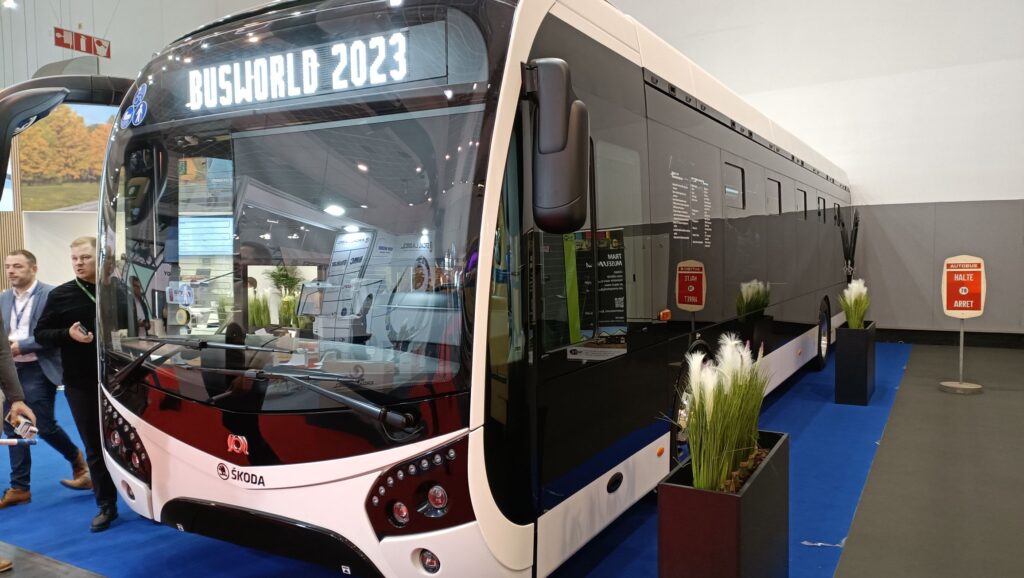Busworld 2023 showcased the best of Škoda Group, a renowned manufacturer of solutions for sustainable urban mobility, made a historic debut at Busworld 2023, Europe’s largest bus and coach trade fair. The event took place in Brussels from 7 to 12 October, and the group presented its view on sustainability, low energy consumption, digital innovation, and reliability. In addition to advanced technologies for electric vehicle propulsion, the group also presented a 12-metre electric bus in cooperation with SOR Libchavy. This state-of-the-art vehicle boasted plug-in charging, a kneeling function, and a modern interior that was adapted for people with reduced mobility. A particular advantage of the vehicle was its quiet and environmentally friendly operation. The Škoda Group was also known worldwide for its extensive portfolio of electric components for all types of public transport vehicles.

“Our debut at Busworld 2023 was very important for the group. In our existence, we had put more than 15,000 trolleybuses into service, alongside several electric buses, and had already introduced two generations of hydrogen-powered buses. Our rich history also included the production of components that powered public transport systems around the world. We invited all trade fair visitors to visit our stand 802 in Hall 8 and see for themselves the technologies that defined the future of public transport,” said Petr Novotný, President Components & Bus Mobility at Škoda Group.
Attendees were able to learn about the most advanced technologies for electric propulsion, the IPMSM motor, and the SiC inverter. The design of the five-phase IPMSM motor had been developed to achieve maximum performance, reduce weight, and increase efficiency, all within the limited space in the vehicle chassis. The SiC traction converter used advanced silicon carbide (SiC) transistor technology to provide exceptional power density. Equipped with a sophisticated control algorithm, this five-phase device delivered high efficiency over a wide range of speeds and loads. The group also presented the ASTRID system, a monitoring system for wheeled vehicles, which monitored and analyzed Škoda’s vehicles in operation. It could monitor up to 50 different parameters during the journey, including fuel consumption, battery life, and bus position.
The Škoda Group’s vehicle portfolio boasted high reliability and a focus on environmentally friendly operation. The partial Škoda trolleybuses delivered to Zlín traveled on average almost 30 thousand kilometers per year on batteries, which represented more than 42% of their total annual mileage. Škoda electric buses traveled over 78 thousand kilometers per year in Trutnov. These statistics underlined the exceptional reliability, durability, and performance that these Czech vehicles brought to the world of urban road transport.